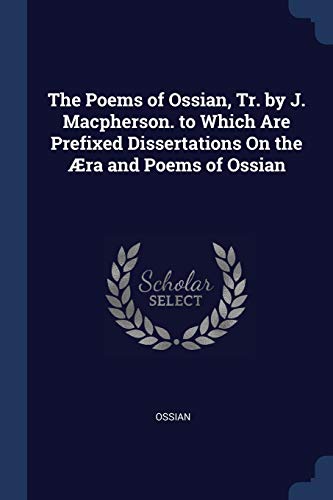What do you think?
Rate this book


396 pages, Paperback
First published January 1, 1772
My voice is like the last sound of the wind, when it forsakes the woods. But Ossian shall not be long alone. He sees the mist that shall receive his ghost. He beholds the mist that shall form his robe, when he appears on his hills. The Sons of feeble men shall behold me, and admire the stature of the chiefs of old. They shall creep to their caves. They shall look to the sky with fear: for my steps shall be in the clouds. Darkness shall roll on my side. Lead, son of Alpin, lead the aged to his woods. The winds begin to rise. The dark wave of the lake resounds. Bends there not a tree from Mora with its branches bare? It bends, son of Alpin, in the rustling blast. My harp hangs on a blasted branch. The sound of its strings is mournful. Does the wind touch thee, O harp, or is it some passing ghost? It is the hand of Malvina! Bring me the harp, son of Alpin. Another song shall rise. My soul shall depart in the sound. My fathers shall hear it in their airy hail. Their dim faces shall hang, with joy, from their clouds; and their hands receive their son. The aged oak bends over the stream. It sighs with all its moss. The withered fern whistles near, and mixes, as it waves, with Ossian's hair.
Strike the harp, and raise the song: be near, with all your wings, ye winds. Bear the mournful sound away to Fingal's airy hail. Bear it to Fingal's hall, that he may hear the voice of his son: the voice of him that praised the mighty!
The blast of north opens thy gates, O king! I behold thee sitting on mist dimly gleaming in all thine arms. Thy form now is not the terror of the valiant. It is like a watery cloud, when we see the stars behind it with their weeping eyes. Thy shield is the aged moon: thy sword a vapor half kindled with fire. Dim and feeble is the chief who travelled in brightness be fore! But thy steps are on the winds of the desert. The storms are darkening in thy hand. Thou takest the sun in thy wrath, and hidest him in thy clouds. The sons of little men are afraid. A thousand showers descend. But when thou comest forth in thy mildness, the gale of the morning is near thy course. The sun laughs in his blue fields. The gray stream winds in its vale. The bushes shake their green heads in the wind. The roes bound towards the desert.
There is a murmur in the heath! the stormy winds abate! I hear the voice of Fingal. Long has it been absent from mine ear! Come, Ossian, come away, he says. Fingal has received his fame. We passed away, like flames that have shone for a season. Our departure was in renown. Though the plains of our battles are dark and silent; our fame is in the four gray stones.